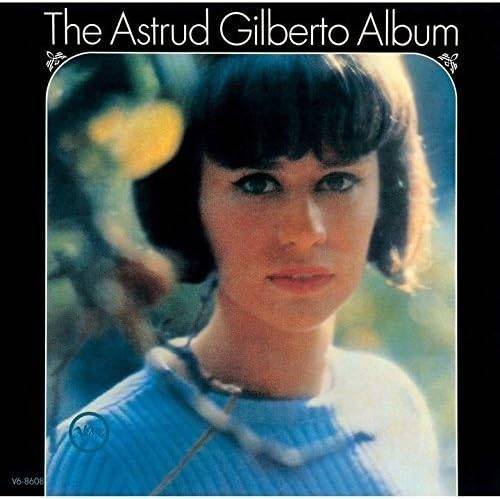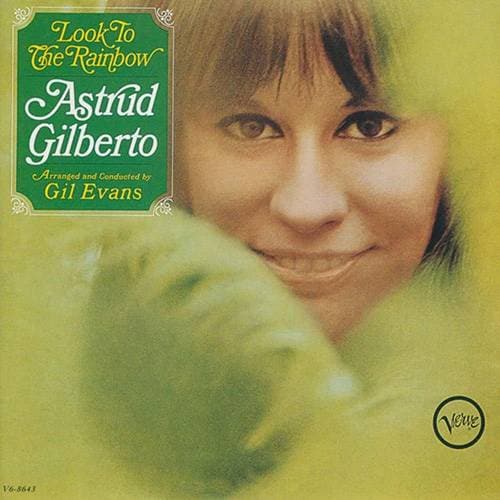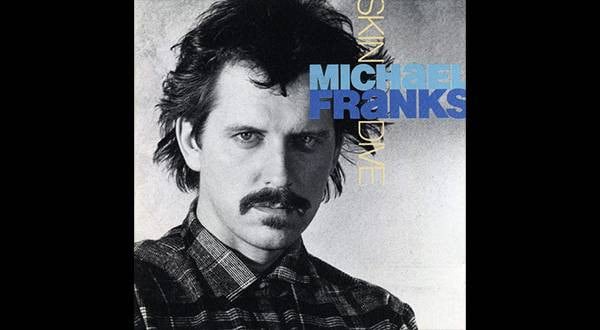An Obituary on Astrud Gilberto, Bossa Nova Diva
On June 5, world-famous bossa nova singer Astrud Gilberto passed away. She was 83 years old.
Astrud Gilberto was the ex-wife of João Gilberto, who was considered the maestro of bossa nova, and was known around the world for her song “Girl from Ipanema”.
In 1964, Astrud jumped on the bandwagon as a female singer for the great bossa nova album “Getz/Gilberto,” and this was the beginning of her big breakthrough.
In this issue, we will remember Astrud Gilberto by focusing on the circumstances leading up to the release of his solo album, as well as the two music directors who were involved with Astrud and their works.
Astrud Gilberto was one content!
The Getz/Gilberto album with Astrud Gilberto won multiple Grammy Awards, and the song she sang, “Girl from Ipanema,” became a worldwide hit.
Astrud Gilberto was a rare gem in the rough that would shine when polished. The American market really missed such a gem.
The year after Getz/Gilberto, producer Creed Taylor released his solo album, which fully featured Astrud Gilberto.
■ Recommended album: Água de Beber (1965) (Water to Drink)

This is a great album that fully develops Astrud Gilberto's fresh singing without her over-singing. The album is so concentrated with the best of Astrud's singing that all she had to do was sing her first line in a song. Now that I think about it, her voice is what bossa nova is all about. When I first heard this song, I was so astonished by her voice that she reminded me of an angel. Listening to it again now, I still feel the same way.
Producer Creed Taylor really must have known what he was doing. I am sure that producer Creed Taylor must have known that Astrud had that “killer voice”.
This was not Creed Taylor's only trick up his sleeve. Backing him were strong musicians such as Antônio Carlos Jobim on guitar, João Donato on piano, Bud Shank on saxophone, and Marty Paich on arrangements. The arrangements, different from the “Gets/Gilberto” album, created a sound that would become one of the archetypes of bossa nova. All the arrangements were made to make the most of Astrud's voice.
Then there are the songs that become the very standard of bossa nova, such as “Once I Loved,” “Água de beber,” “How Insensitive,” “Dindi” and “Dreamer” (Vivo sonhando). The unquestionable tricks of the trade were the quintessence of the famous producer Creed Taylor.
Creed Taylor may have poured all the delicious parts of Astrud into this album. Although he reached out to film music and standards, I am not the only one who feels that the vividness of the song selection seen in the first album is not found in later albums.
Astrud Gilberto was 24 years old at the time. Her singing created the second greatest bossa nova album following “Getz/Gilberto,” and her voice became a worldwide sensation.
Recommended song: “Dindi”
Oddly enough, Jobim is responsible for all the songs on this album, which is why it is considered to be a masterpiece. When evaluating the quality of an album, the quality of the music is a more important factor than the performance. The fact that a song is by Jobim is a guarantee of the album's quality.
“Dindi” is the nickname of the bossa nova singer Sylvia Telles. The song was written by lyricist Aloísio de Oliveira in memory of his wife, Silvia D’Atri Telles. “Dindi” is an important bossa nova song and one of Jobim's masterpieces. When Astrud sings this song with this group of musicians, I am at a loss of words. The singing, which is easy-going but tinged with a certain sadness, is superb.
■ Recommended album: Look to the Rainbow (1966)

Arranged by Gil Evans, a master of the American jazz world. The collaboration with the Gil Evans Orchestra is a must-listen. The album features Baden Powell's classic “Berimbau” and Michei Legrand's masterpiece. As Gil Evans is known as a magician of sound, he has chosen and arranged songs from a different perspective from that of Creed Taylor. The approach of Gil Evans, who is conscious of the syncopated rhythms characteristic of bossa nova bubbling up with the orchestra, is wonderful. Moreover, this is a wonderful album in which the arrangements highlight the singing of the singer, Astrud Gilberto. I bow down to the work of an absolute magician.
Recommended music: “Berimbau”
The song begins with the introduction of the Brazilian folk instrument, the berimbau. Immediately after the introduction, Astrud's vocals start to come out, which is a surprising development. Baden Powell's famous song stirs up in an unexpected way. The collaboration between Gill's brass arrangement and Astrud's voice is brilliant.
Recommended song: “I will wait for you”
This is the title song of the 1964 French musical film, “The Umbrellas of Cherbourg,” and a Michei Legrand classic.
Gil Evans made a tremendous attempt with this song arrangement. He eliminated the syncopated bossa nova rhythm and used orchestral brass as a luscious backing. Astrud's vocals are placed on top of this cloud-like ensemble. I have never heard an arrangement that brought out Astrud's vocals so well as this one. An even more surprising part awaits in the second half. The duo of Astrud's vocals and the trumpet is a treat to hear. No one would have expected to hear a trumpet over Astrud's vocals, as she was not a particularly technical singer. The fact that it was unexpected and effective was a reminder of nothing short of the wizardry of Gil Evans.
Musicians, albums, and recommendations featured in this issue
- Artists: Astrud Gilberto, Gil Evans, João Donato, Antônio Carlos Jobim
- Albums:Água de Beber, Look to the Rainbow
- Songs: “Dindi,” “Berimbau,” “I will wait for you”
The “sound & person” column is made up of contributions from you.
For details about contributing, click here.














![[Event Report] Toso Art Music Festival Vol. 2 - TOSO ART ROCK FESTIVAL](/contents/uploads/thumbs/2/2022/4/20220409_2_17442_1.jpg)


 USB接続対応のMIDIキーボード
USB接続対応のMIDIキーボード
 超オススメのフレーズ道場 キーボード
超オススメのフレーズ道場 キーボード
 自分にあったピアノを選ぼう!役立つピアノ用語集
自分にあったピアノを選ぼう!役立つピアノ用語集
 各メーカーの鍵盤比較
各メーカーの鍵盤比較
 用途で選ぶ!鍵盤楽器の種類
用途で選ぶ!鍵盤楽器の種類
 キーボードスタートガイド
キーボードスタートガイド














